Kenmore 417 series laundry center dryer error codes

These error code explanations help troubleshoot a problem with your Kenmore laundry center 417-series dryer. Models 417.6171, 417.6172, 417.7171 and 417.7172 display these codes.
When your Kenmore laundry center 417-series dryer quits working, enter the diagnostic test mode to hear error code beeps that will likely point you in the direction of the failure. The laundry center has separate diagnostic test modes for the washer and dryer, so you'll need to enter the diagnostic test model for the portion of the laundry center that stops working. This article explains how to enter the laundry center dryer diagnostic test mode.
Once you know the error code your dryer is signaling, troubleshoot the problem using the chart below.
If the washer on your laundry center has stopped working, find out how to enter the washer's diagnostic test mode and troubleshoot error codes.
For repair how-to help, visit the PartsDirect repair help section, which includes repair help for refrigerators, other major appliances, lawn and garden equipment, garage door openers, vacuum cleaners and more. Search for your model number to find a complete list of replacement parts for your laundry center.
Moisture sensor failure
Check for any metal or foreign objects stuck between the moisture sensor bars. If there's nothing stuck between the moisture sensor bars, unplug the laundry center and check the moisture sensor wire harness for damage. Replace the wire harness if damaged. If the wire harness is intact, replace the dryer electronic control board.
Door open
Unplug the laundry center and check the wire harness connections between the door switch and the dryer electronic control board. Reconnect any loose wires or replace the wire harness if damaged. If you find no wiring problems, check the resistance of the door switch using a multimeter. With the door switch plunger pushed in, you should measure near 0 ohms of resistance through the door switch prongs with red and orange wires. Replace the door switch if you measure infinite resistance. If door switch resistance is okay, replace the dryer electronic control board because it isn't detecting the door switch condition.
Motor relay is open
Unplug the laundry center and check the wire harness connections on the dryer motor and the dryer electronic control board. Reconnect any loose wires or replace the wire harness if damaged. On an electric dryer model, check the resistance of the outlet thermal limiter (on the upper back panel) because it shuts off the motor when the dryer overheats. You should measure near 0 ohms of resistance through the outlet thermal limiter. Replace the outlet thermal limiter if you measure infinite resistance. (Diagnose and repair the cause for the electric dryer overheating to prevent the outlet thermal limiter from continuing to trip. The most common causes are a clogged exhaust vent, clogged lint screen and failed thermistor.) Conduct these additional tests on electric dryers, as well as gas dryers. Check the resistance through the motor circuit from the dryer control board. The motor connects to the control board through the white wire on the J1 plug and the black wire on the J2 plug. Disconnect those plugs and measure the resistance through the black and white wires. You should measure about 3 ohms of resistance. If you measure infinite resistance, you'll need to test for a failed motor or a break in the wiring. To test the motor, unplug the wire harness from the motor and check the resistance through prongs 4 and 5 on the motor. Replace the drive motor if you measure infinite resistance. If you measure around 3 ohms of resistance through prongs 4 and 5, then the motor is likely okay and a break in the wiring caused the infinite resistance through the motor circuit. Find and repair the wiring break. If you measured about 3 ohms of resistance through the motor circuit through the black and wires at the dryer electronic control board, replace the dryer electronic control board because its motor relay isn't working.
Motor relay stuck closed
Unplug the laundry center and check the wire harness connected to the dryer motor for damage. Replace the wire harness if damaged. If the wire harness is okay, replace the dryer electronic control board because the motor relay is stuck closed or the dryer electronic control board is errantly detecting that failure.
Motor stopped mid-cycle
Overloading can overheat the drive motor, causing a tripped motor thermal protector. The motor thermal protector resets after the motor cools down. Reduce the load and allow the motor to cool off for 30 minutes before restarting the dryer. If the dryer won't restart, unplug the laundry center. On an electric dryer model, check the resistance of the outlet thermal limiter because it shuts off the motor when the dryer overheats. You should measure near 0 ohms of resistance through the outlet thermal limiter. Replace the outlet thermal limiter if you measure infinite resistance. (Diagnose and repair the cause for the electric dryer overheating to prevent the outlet thermal limiter from continuing to trip. The most common causes are a clogged exhaust vent, clogged lint screen and failed thermistor.) Next, check the resistance of the door switch. With the door switch plunger pushed in, you should measure near 0 ohms of resistance through the door switch prongs with red and orange wires. Replace the door switch if you measure infinite resistance. If the door switch is okay, unload the dryer and manually rotate the drum to see if it spins. You should feel reasonable resistance because the belt spins the motor pulley as you rotate the drum. If you can't spin the drum, disconnect the belt from the motor pulley and try again. If the drum spins with the belt disconnected, see if the motor pulley spins. If not, replace the motor because the motor shaft locked up. If the drum doesn't spin with the belt disconnected, check the rear drum bearing and front glide for damage and replace any damaged parts.
Motor centrifugal switch, heater or outlet thermal limiter failure
Unplug the laundry center and then unplug motor wire harness. Check the resistance through prongs 1 and 2 on the motor. You should measure infinite resistance (no continuity). If not, replace the drive motor because a failed centrifugal switch in the motor is allowing current to flow through those prongs when the motor is off. Conduct these additional tests on laundry centers with electric dryers. Check the resistance of the heating element. You should measure around 11 ohms of resistance through the element. Replace the element if you measure infinite resistance. Check for resistance between each prong of the heating element and bare metal on the heater housing. If you measure resistance, replace the heating element because it's broken and shorting to metal, which acts as a ground. Check the resistance through the outlet thermal limiter. You should measure near 0 ohms of resistance through the outlet thermal limiter. Replace the outlet thermal limiter if you measure infinite resistance. Diagnose and repair the cause for overheating (such as a clogged exhaust vent) to prevent the outlet thermal limiter from continuing to trip.
Dryer electronic control board failure
Unplug the laundry center and check the wire harness connections on the dryer electronic control board. Reconnect any loose wires and replace the wire harness if damaged. If the wiring connections are okay, replace the dryer electronic control board.
Broken drum belt
Unplug the laundry center and replace the drum belt.
Heater relay failure
If the dryer heats, check to see if the heater relay is stuck closed. Unplug the laundry center and unplug the wires from the heater relay on the dryer electronic control board. Measure the resistance through the prongs on the heater relay. You should measure infinite resistance. If you measure near 0 ohms of resistance, replace the dryer electronic control board because the heater relay is stuck closed. If the dryer doesn't heat, the heater relay could be stuck open. For gas dryers, check to see if the igniter glows when you run the dryer on a high heat setting. If the igniter doesn't glow, unplug the laundry center and check the resistance through the high-limit thermostat. You should measure near 0 ohms of resistance. If you measure infinite resistance, replace the high-limit thermostat. If the high-limit thermostat is okay, check the resistance through the inlet thermal limiter in the same manner. Replace the inlet thermal limiter if you measure infinite resistance. Check the resistance through the igniter. You should measure 50 to 400 ohms. If you measure infinite resistance, replace the igniter. If the igniter is okay, then you'll likely need to replace the dryer electronic control board because the relay isn't sending power to the igniter and gas valve assembly. For a laundry center with an electric dryer, unplug the laundry center and check the high-limit thermostat and inlet thermal limiter in the same manner as described for the gas dryer and replace any failed components. Measure the resistance through the heating element. You should measure about 11 ohms. Replace the heating element if you measure infinite resistance. If the heating element is okay, then you'll likely need to replace the dryer electronic control board because the relay isn't sending power to the heating element.
Not heating
For laundry centers with electric dryers, check the house circuit breakers for the laundry center outlet. The dryer won't heat if the L2 leg of 240-volt power is missing. Reset the breaker if necessary. Unplug the laundry center and check the power cord wiring on the dryer terminal block. Reconnect any loose power cord connections and wire the power cord according to the directions in the installation manual. Replace the power cord if damaged. Measure the resistance through the heating element. You should measure about 11 ohms. Replace the heating element if you measure infinite resistance. Check the resistance through the high-limit thermostat. You should measure near 0 ohms of resistance. If you measure infinite resistance, replace the high-limit thermostat. Check the resistance through the inlet thermal limiter in the same manner. Replace the inlet thermal limiter if you measure infinite resistance. For laundry centers with gas dryers, check the gas supply cut-off valve to make sure it is fully open. See if the igniter glows when you run the dryer on a high heat setting. If the igniter doesn't glow, unplug the laundry center and check the high-limit thermostat and inlet thermal limiter the same way as for the electric dryer and replace any failed components. Check the resistance through the igniter. You should measure 50 to 400 ohms. If you measure infinite resistance, replace the igniter. If the igniter glows but the burner won't light, check to see if the igniter fades off after a few minutes. If the dryer runs for more than 5 minutes with the igniter glowing constantly, then the flame sensor may have failed. The flame sensor should shut off the igniter to divert current through the gas valve coils to ignite the burner once the igniter reaches ignition temperature. Replace the flame sensor if the igniter glows and never shuts off. If the igniter fades off but the burner doesn't ignite, you'll likely need to replace the valve coils because they're not opening to supply gas to the burner.
Too many high-limit thermostat trips
Clean the lint screen and the exhaust vent duct system to the outside of your home. A clogged screen or exhaust vent duct can cause the dryer to overheat. If the exhaust system is clear, unplug the laundry center and check the resistance of the thermistor (temperature sensor). You should measure around 50,000 ohms at room temperature (77 degrees F). Replace the thermistor if you measure over 60,000 ohms. Unplug the wires from the heater relay on the dryer electronic control board. Measure the resistance through the prongs on the heater relay. You should measure infinite resistance. If you measure near 0 ohms of resistance, replace the dryer electronic control board because the heater relay is stuck closed.
Dryer electronic control board failure
Unplug the laundry center and replace the dryer electronic control board.
Thermistor unplugged or defective
Unplug the laundry center and check the wire harness connection between the thermistor and the dryer electronic control board. Reconnect any loose wires and repair any damaged wires. Measure the resistance of the thermistor. You should measure around 50,000 ohms at room temperature (77 degrees F). Replace the thermistor if you measure infinite resistance. If the thermistor is okay, replace the dryer electronic control board because it isn't detecting the thermistor.
Thermistor shorted
Unplug the laundry center and disconnect the thermistor wire harness (yellow and tan wires) from the dryer control board. Measure the resistance through the yellow and tan wires. You should measure around 50,000 ohms at room temperature (77 degrees F). Replace the thermistor if you measure near 0 resistance. Replace the dryer electronic control board if thermistor resistance is correct.
User interface failure
Unplug the laundry center and check the wire harness connections between the dryer electronic control board and the cycle selector. Also, check the wire connections for the modifier switches. Reconnect any loose wires and repair any broken wires. If you find the wires intact, replace the cycle selector. If the problem continues, replace the modifier switches. If the problem still continues, replace the dryer electronic control board.
Cycle selector failure
Unplug the laundry center and check the wire harness connections between the dryer electronic control board and the cycle selector. Reconnect any loose wires and repair any broken wires. If the wires are okay, replace the cycle selector. If the problem continues, replace the dryer electronic control board.
Dryer electronic control board software failure
Unplug the laundry center and replace the dryer electronic control board.
Dryer electronic control board initialization failure
Unplug the laundry center and replace the dryer electronic control board.
Cycle selector defective
Unplug the laundry center and replace the cycle selector. If the problem continues, replace the dryer electronic control board.
Incoming power frequency out of limits
The dryer stops and beeps 10 times when incoming power frequency isn't 60 Hz or incoming power voltage isn't correct. You won't be able to start the diagnostic test until you restore incoming power with the right frequency and voltage to the washer. Unplug the laundry center and have your local electricity provider check the power supply frequency and voltage. If the power supply is okay and the code doesn't clear, replace the dryer electronic control board.
Incoming power voltage too high
The dryer stops and beeps 10 times when incoming power frequency isn't 60 Hz or incoming power voltage isn't correct. You won't be able to start the diagnostic test until you restore incoming power with the right frequency and voltage to the washer. Unplug the laundry center and have your local electricity provider check the power supply frequency and voltage. If the power supply is okay and the code doesn't clear, replace the dryer electronic control board.
Incoming power voltage too low
The dryer stops and beeps 10 times when incoming power frequency isn't 60 Hz or incoming power voltage isn't correct. You won't be able to start the diagnostic test until you restore incoming power with the right frequency and voltage to the washer. Unplug the laundry center and have your local electricity provider check the power supply frequency and voltage. If the power supply is okay and the code doesn't clear, replace the dryer electronic control board.
Dryer electronic control board internal failure
Unplug the laundry center and replace the dryer electronic control board.
Most common symptoms to help you fix your laundry centers
Choose a symptom to see related laundry center repairs.
Main causes: lack of water supply, failed lid switch or lid lock, bad water level pressure switch, control system failur…
Main causes: bad lid switch or lid lock, drive motor failure, broken motor coupler, bad timer, faulty electronic control…
Main causes: blocked exhaust vent, clogged lint screen, bad timer, moisture sensing problems, weak gas valve coils, bad …
Main causes: broken dryer drive belt, weak drive motor, binding drum seals…
Main causes: control system failure, broken heating element, bad gas valve coils, gas supply failure, voltage supply pro…
Main causes: unbalanced load, broken suspension springs or shocks, worn snubber ring…
Main causes: door not fully shut, bad door switch, faulty push-to-start switch, wiring failure, bad drive motor, blown f…
Main causes: clogged drain system, blocked drain hose, bad drain pump…
Main causes: broken lid switch or lid lock, faulty drive motor, drain system problem, broken drive system components…
Most common repair guides to help fix your laundry centers
These step-by-step repair guides will help you safely fix what’s broken on your laundry center.
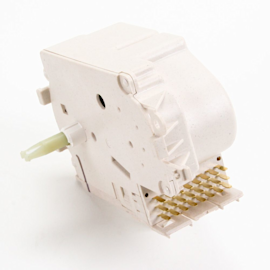
How to replace a laundry center washer timer
If the washer doesn't fill, spin or drain, the timer could be the problem. …
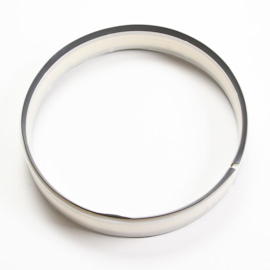
How to replace a laundry center washer snubber ring
If the washer tub bangs the cabinet during the spin cycle even though the load is balanced, you might need to replace th…
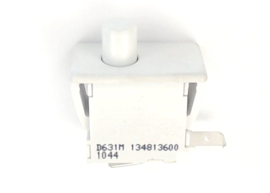
How to replace a laundry center dryer door switch
The dryer won’t start if the door switch is defective. Your can replace it in about 15 minutes.…
Effective articles & videos to help repair your laundry centers
Use the advice and tips in these articles and videos to get the most out of your laundry center.

Learn about all the convenient features on our Sears PartsDirect website that make your parts purchases easier.…
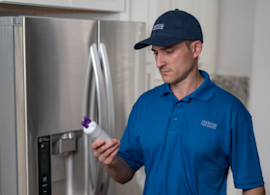
Get answers to frequently asked questions about Sears and Sears PartsDirect.…
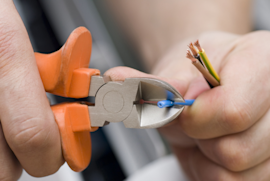
Learn how to repair broken, frayed or damaged wires in your appliances.…